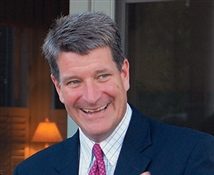St. Paul’s School has been in the news lately as the trial of student accused of raping another student continues along with a discussion of the culture of privilege and sexism that the incident points to. Prior to the trial, during the Spring Convocation address, Michael G. Hirschfeld, the Rector of St. Paul’s School, spoke to the students, parents, and alumni about privilege, and the mission of a Christian institution that schools those privileged to be there.
On privilege:
So let me ask today: Have you ever considered a version of cosmic circumstance in any realm of your life? I think it is difficult to see actually, because we mostly take the circumstances of our lives for granted. Our cosmic circumstances are always with us, but they are usually as unnoticed as the air we breathe.Consider being a Christian in this space and at this School. I am a Christian, so when I read the prayers in Chapel Services and Prayers or sing any number of hymns that refer to Jesus Christ, I can do so without pause. Being Christian is part of my air. I can recite the School Prayer without having to mumble or skip over the last line, “Through Jesus Christ our Savior. Amen.” I suspect there are many in Chapel this morning who do not share my comfort when we read, pray, or sing Christian texts. In this way, Christians in this space, indeed, at this Christian school, enjoy a privilege others do not. You will note when we recite Christian prayers often, but not always, Reverends Spencer, Greenleaf, or Courtright will recognize Christian privilege and ask all of us to pray or meditate as our faith tradition and comfort guide us. This small gesture reminds us that not everyone is breathing the same air.Talk of privilege is tough. It is hard. I am not sure why this is so, but it is. It engenders guilt and defensiveness, or it does in me at least. You often hear of your privilege of being a student at St. Paul’s School. It has been a message delivered to you in this space and others since your arrival here, perhaps even before you arrived here. Don’t get me wrong, I believe it is a privilege to go to St. Paul’s School or a school like it. But the word privilege has a way of reducing our experience as individuals that makes us uncomfortable, doesn’t it? The word privilege seems to negate or work against our agency as individuals, like the simple fact that it was your own hard work, not just your cosmic circumstance that allowed you to come to school here. While we may all share the privilege of being at St. Paul’s School, does that diminish our individuality? And does the privilege of being here mean we should behappy all the time? It’s a tall order at any stage of life, maybe impossible as a young adult. Privilege is complicated.One privilege I have is being white, a privilege literally born of the cosmic circumstance that my parents were white. I will confess that for most of my life I did not recognize being white as a privilege. My whiteness is my air – simultaneously everywhere and invisible to me. Put more bluntly my whiteness has allowed me the privilege of not having to think deeply about race in my own life. What does it mean to be a white person in America? Or at St. Paul’s School? These are questions I have not always had to ask or answer. But they are, I suspect, common questions for people who do not benefit from the privilege of being white. In this way, this privilege engenders in me a kind of blindness about race, a blindness I have been working to overcome.
On ‘slaying’:
Last year, on two separate occasions, I remember two students (a boy and a girl) used the words “slay” and “slayer” in Chapel in reference to heterosexual relationships. I remember these instances well. These words made me uncomfortable, as I suspect they did many other people. While these words made me uneasy, I did nothing as the head of the School to address their use nor, to my knowledge, did anyone else. Why was that? Are these words and what they suggest a part of our air? We should be asking these questions.And as you know, the outside world is also asking questions about our air, our culture.

